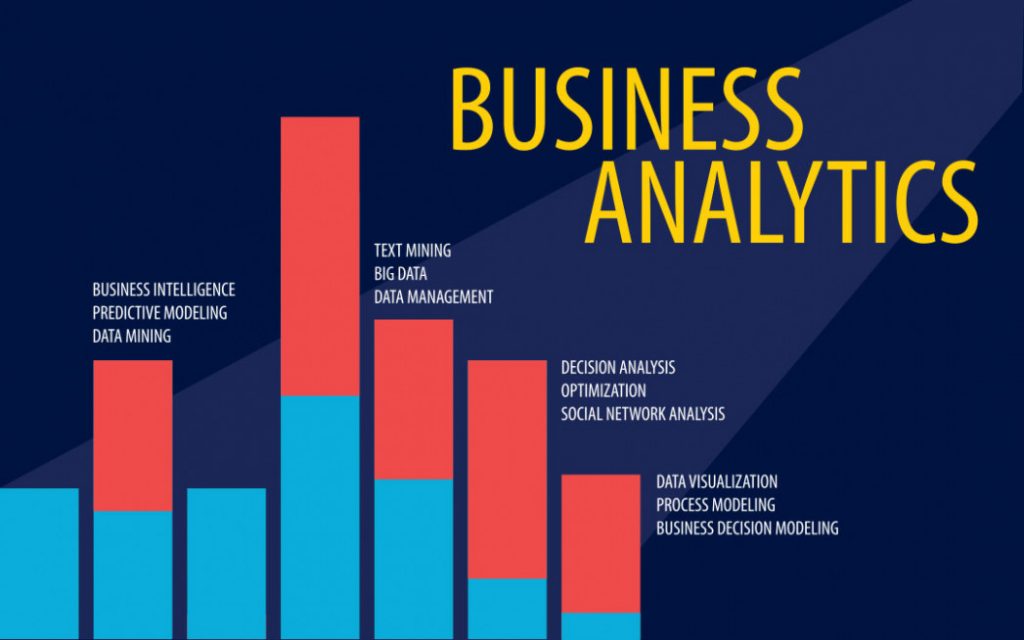Details on MBA in Business Analytics vs MS in Business Analytics

It’s no secret that organizations across the globe are investing heavily in analytics to capture and gather insights from the estimated 2.5 quintillion bytes of data generated per day. However, many of these organizations simply acquire new analytics tools without changing the culture—resulting in big data projects being abandoned before they go beyond the experimentation stage. One way to solve this problem is to hire data experts who understand the technical aspects of analytics and data, as well as their business applications, to help their organizations make smarter investments and decisions in analytics-driven projects.
Because of this demand, the role of data scientist has been called the best job in America, and many data professionals are competing to land these attractive jobs. However, with roughly 40% of data scientist and advance analyst roles requiring a master’s degree (or higher), choosing the right program that helps you stand out from the competition is a difficult task. Many professionals consider either an MBA in Business Analytics or an MS in Business Analytics—but it is important to understand the differences between these business analytics graduate degrees to know which is the right path for your career.
Key Differences Between an MBA in Business Analytics vs. MS in Business Analytics
MBA in Business Analytics
- Business analytics is typically offered as a concentration or specialization within an MBA program
- Advanced analytics courses are more theoretical and focus on the broad application of data analytics to improve business outcomes
- Analytics courses typically discuss the broad application of data analytics to improve business outcomes
- Appeals to individuals with business backgrounds who want to gain familiarity with data analytics
MS in Business Analytics
- Program fully dedicated to the study of business analytics
- Courses are both practical and theoretical, and offer hands-on experience using machine learning, software engineering and predictive modeling to solve business challenges
- Appeals to individuals with technical backgrounds who are interested in developing mastery with data science techniques for practical applications
MBA in Business Analytics

Because MBAs offer benefits like transferable skills, networking opportunities and high salaries, thousands of business professionals earn this degree every year hoping to position themselves for success in a wide range of industries.
Prospective MBA students may be interested in a career in big data and business analytics to join the market that is expected to hit $203 billion by 2020. While MBA programs are not dedicated entirely to business analytics, many MBAs offer tracks, specializations or concentrations in business analytics, enabling students to develop the skills required to make better data-driven business decisions.
MBA in Business Analytics programs are geared to students with backgrounds in business, and include extensive core coursework in business fundamentals such as accounting, finance, marketing and strategy. The business analytics components of these programs are usually taken as electives and focus on the business applications of data analytics with courses in big data, business forecasting, statistical applications and optimization.
Because they are broader than an MSBA, MBAs in Business Analytics do not typically offer the same amount of hands-on experience with analytical tools and methodologies. For example, some coursework may involve developing statistical models for forecasting business outcomes, but MBA programs often cover topics like machine learning by exploring their historic and theoretical applications to business problems rather than with hands-on learning.
MS in Business Analytics
Master of business analytics programs provide technical skills as well as an overview of business strategies to contextualize how these technical skills can be implemented efficiently and for maximum benefit. They are geared toward individuals with technical backgrounds who, like those in MBA in Business Analytics programs, want to become skilled in applying data in business environments to make better decisions. However, MS in Business Analytics students will also gain advanced, applied technical skills in subjects including software engineering, machine learning and analytical modeling.

Students typically take courses that provide them with hands-on experience in R and Python, two of the most popular programming languages for data analytics. These two programming languages are often paired together because analytics and data science professionals can develop custom R modules using Python.
Other core competency areas for an MSBA include machine learning for business applications and optimization for prescriptive analytics. These in-depth technical courses develop students’ proficiency in state-of-the-art analytics techniques and teach them how to manage and transform data for business use.
The sophisticated technical coursework, combined with courses in management, business fundamentals and marketing, is intended to develop two essential qualities in today’s analytics job market:
- The ability to identify the most appropriate technical tools and methodologies to solve a given business problem
- The business and technical aptitude to use those tools for directly solving business problems








